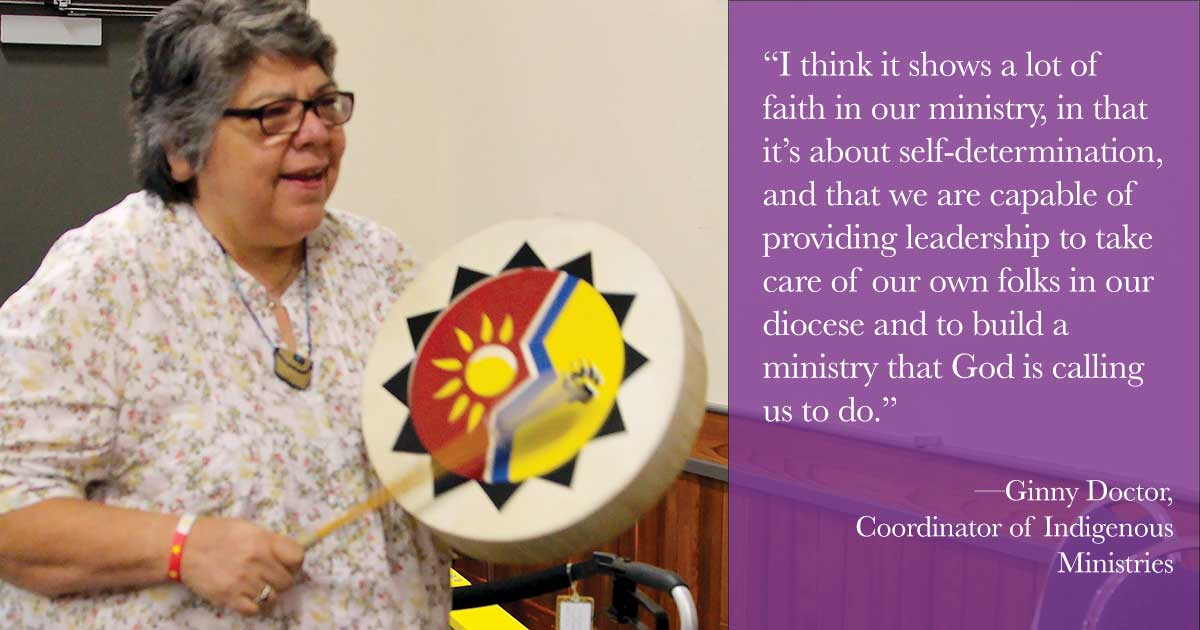
The Ecclesiastical Province of Rupert’s Land has voted to create two new suffragan bishop positions, one for northern Manitoba and one for northern Ontario. The appointment of the two new bishops will bring the total number of active Indigenous Anglican bishops to eight.
Archbishop Greg Kerr-Wilson, Metropolitan of Rupert’s Land, says that the recent push to create the two positions reflects wider changes in the church regarding attitudes towards Indigenous self-determination.
“I think in this case, the right factors came into play, the right people in the right context, and … heightened awareness amongst the broader province of the importance and significance of Indigenous self-determination in the life of the church, and the ability to have a self-determining church within the Anglican Church of Canada,” the archbishop said.
Both suffragan bishops will be considered part of the Indigenous Spiritual Ministry of Mishamikoweseh. However, the bishop for northern Manitoba will also be responsible for the northern part of the Diocese of Brandon—particularly the Deanery of The Pas—and likely parts of the Diocese of Saskatchewan.
Benefits for Indigenous communities
National Indigenous Anglican Bishop Mark MacDonald called the creation of the new bishop positions “a huge shot in the arm in multiple ways” for Indigenous ministry within the church and self-determination. He further notes that it will provide Indigenous bishops with a higher profile in the national House of Bishops, as well as a stronger voice in numerous councils of the church.
“I think it shows a lot of faith in our ministry, in that it’s about self-determination, and that we are capable of providing leadership to take care of our own folks in our diocese and to build a ministry that God is calling us to do,” says Ginny Doctor, Coordinator of Indigenous Ministries. “And I think people are finally beginning to realize that we can take it on, so that’s significant.”
One of its most noteworthy impacts will be the ability of the Indigenous bishops to communicate in the local language of their communities. Bishop MacDonald said that the bishop for northern Manitoba will undoubtedly speak one of the region’s three main dialects of Cree, while the bishop for northern Ontario will be able to speak Oji-Cree.
Another advantage of the suffragan bishops will be their ability to provide direct pastoral care to remote communities and to preside over ceremonies such as baptisms, confirmations, and weddings—providing valuable support to area clergy, many of whom are currently non-stipendiary.
Sustainability
A key concern going forward will be making sure that the new positions for the bishops are financially sustainable.
The Diocese of Brandon has committed $56,000 over the next four years to help Mishamikoweesh finance the new bishop position.
“Mishamikoweesh and Brandon share northern Manitoba, but those boundaries are really colonial holdovers,” says Bishop William Cliff of the Diocese of Brandon. “They’re diocesan boundaries from old days, and [for] the folks in the north of Manitoba, especially the Cree folks, those boundaries don’t mean a lot.”
Though a budget has been set for the next four years, funding will require an increase in contributions from local congregations. Bishop MacDonald, however, said that “there is quite a bit of confidence that [congregations] will respond generously to the increasing pastoral care that this position will allow.”
Despite all the challenges, Archbishop Kerr-Wilson—who with Bishop MacDonald will be overseeing the election and consecration of the bishops—expressed excitement over the progress being made, and for those who have long championed the cause of appointing area bishops in the north.
“I’m very pleased that after all these years they’ve been able to get to this place,” says Archbishop Kerr. “And I would ask for the church broadly to be praying for the support and the strength of the Spirit as they move forward in this new ministry.”
A tentative date has been set in early September for the election and consecration of the new bishops.
